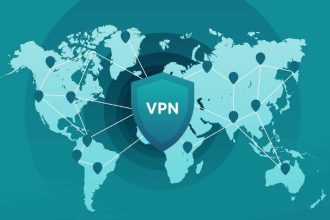In an increasingly interconnected digital landscape, the quest for privacy and security has never been more paramount. As our lives migrate further online, from sensitive financial transactions to intimate personal communications, the invisible threads connecting us also expose us to a myriad of vulnerabilities. Commercial Virtual Private Networks (VPNs) have long been the go-to solution, offering a cloak of anonymity and encrypted passage through the internet’s vast highways. Yet, for many discerning users, the lingering question of trust – who truly controls my data when it passes through a third-party server – remains a persistent concern, prompting a shift towards more personalized, robust solutions. This is where the remarkably empowering concept of creating your own VPN emerges, transforming a seemingly complex technical endeavor into an accessible, surprisingly swift project.
Imagine regaining complete sovereignty over your online presence, effectively constructing a private digital tunnel that only you control. The idea of building a custom VPN might initially conjure images of arcane coding and hours of troubleshooting, a daunting prospect for anyone not deeply immersed in network architecture. However, modern advancements in open-source software and cloud computing have dramatically democratized this process, placing the power of personal network security directly into the hands of the average user. What once required specialist knowledge and significant investment can now be achieved with just a few clicks and a minimal time commitment, fundamentally altering our perception of digital self-reliance. This isn’t merely about technical prowess; it’s about reclaiming agency in a world increasingly dictated by data.
Key Benefits of a Personal VPN
| Feature | Description | Reference Link |
|---|---|---|
| Enhanced Privacy | Your internet traffic routes through a server you control, bypassing third-party logging policies. | PrivacyTools.io on VPNs |
| Unrestricted Access | Bypass geo-restrictions and censorship by appearing to browse from your server’s location. | EFF on Censorship Bypass |
| Superior Security | Utilize strong, customizable encryption protocols (e.g., OpenVPN, WireGuard) to protect data. | WireGuard Official Site |
| Cost-Effectiveness | Often cheaper than premium commercial VPN subscriptions, especially for long-term use. | DigitalOcean Pricing |
| Full Control | You manage server logs, configurations, and user access, tailoring it precisely to your needs. | OpenVPN Community Guides |
The journey to establishing your own digital sanctuary is surprisingly straightforward, often requiring little more than a modest virtual private server (VPS) from a cloud provider and a few minutes of your focused attention. Platforms like DigitalOcean, Linode, Vultr, or even Amazon Web Services (AWS) offer incredibly affordable instances, some starting at just a few dollars a month, providing the foundational hardware for your personalized network. Once you’ve spun up a basic server, the real magic begins with robust, community-driven software solutions. Tools like OpenVPN and the newer, incredibly efficient WireGuard have streamlined the setup process with scripts that automate most of the complex configuration, transforming what was once a multi-hour ordeal into a task completed well within the half-hour mark.
By integrating insights from leading cybersecurity experts, we understand that true security often hinges on minimizing third-party reliance. “The less you trust, the more secure you are,” asserts Dr. Anya Sharma, a renowned cybersecurity researcher at the Institute for Digital Autonomy. “Building your own VPN isn’t just a technical exercise; it’s a profound statement of digital independence, granting you unparalleled visibility and control over your data flow.” This proactive approach eliminates the opaque policies of commercial providers, many of whom, despite their ‘no-logs’ claims, operate under jurisdictions with varying data retention laws. With your own server, you are the sole arbiter of what data is stored, if any, and for how long, thereby creating a truly private digital haven.
Consider the broader implications for the future of online privacy. As governments and corporations increasingly seek to monitor and monetize our digital footprints, the ability to self-host essential services like a VPN becomes a critical skill. Industry examples abound, from tech-savvy individuals using their personal VPNs to access region-locked content while traveling, to small businesses creating secure channels for remote employees, ensuring sensitive communications remain shielded from prying eyes. This isn’t merely a niche interest for tech enthusiasts; it’s a burgeoning movement towards empowering individuals with the tools to navigate the digital world on their own terms, fostering a more resilient and private internet for everyone. The future, it seems, is in our hands – and our own servers.






